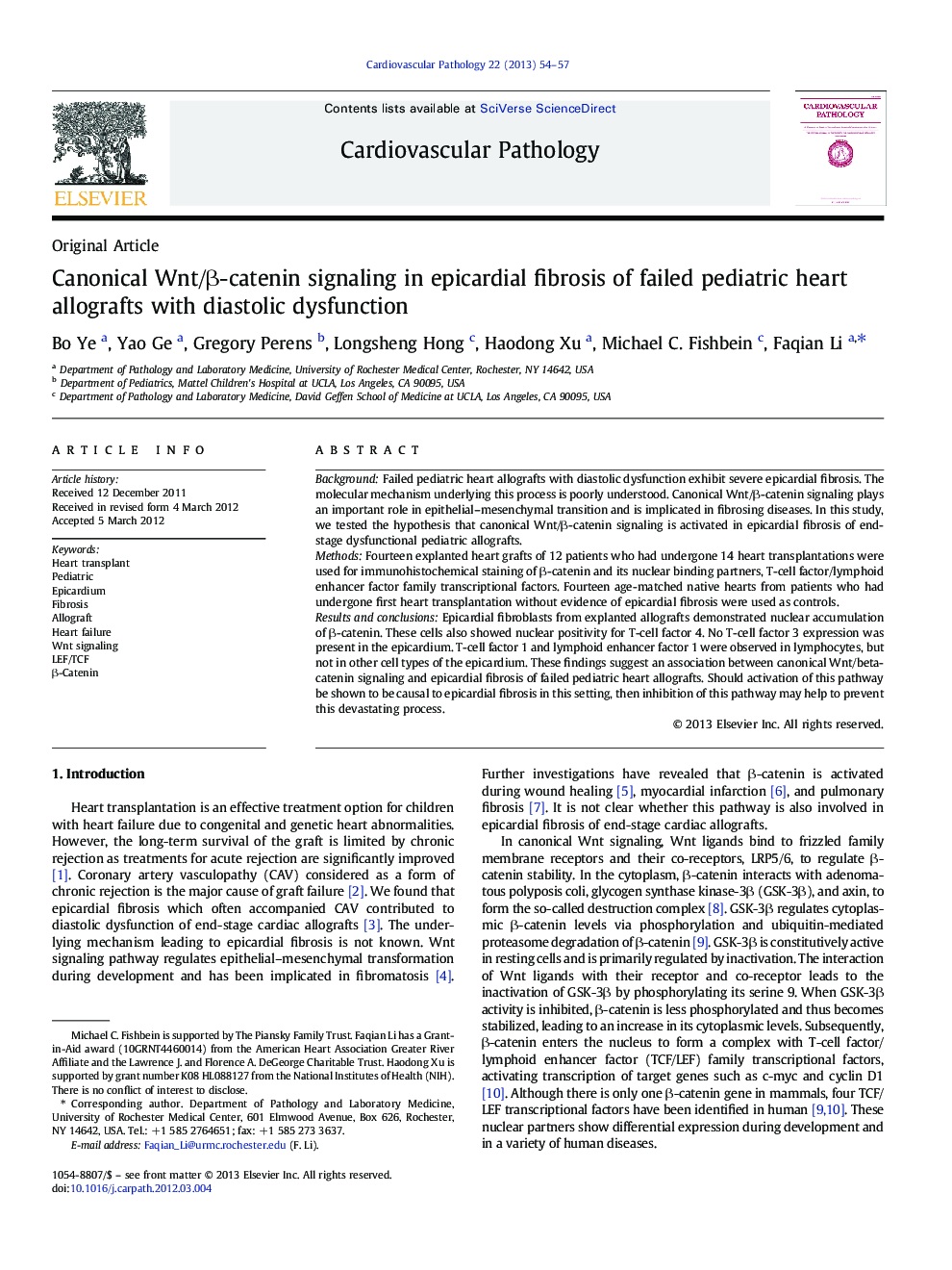| Article ID | Journal | Published Year | Pages | File Type |
|---|---|---|---|---|
| 5951974 | Cardiovascular Pathology | 2013 | 4 Pages |
BackgroundFailed pediatric heart allografts with diastolic dysfunction exhibit severe epicardial fibrosis. The molecular mechanism underlying this process is poorly understood. Canonical Wnt/β-catenin signaling plays an important role in epithelial-mesenchymal transition and is implicated in fibrosing diseases. In this study, we tested the hypothesis that canonical Wnt/β-catenin signaling is activated in epicardial fibrosis of end-stage dysfunctional pediatric allografts.MethodsFourteen explanted heart grafts of 12 patients who had undergone 14 heart transplantations were used for immunohistochemical staining of β-catenin and its nuclear binding partners, T-cell factor/lymphoid enhancer factor family transcriptional factors. Fourteen age-matched native hearts from patients who had undergone first heart transplantation without evidence of epicardial fibrosis were used as controls.Results and conclusionsEpicardial fibroblasts from explanted allografts demonstrated nuclear accumulation of β-catenin. These cells also showed nuclear positivity for T-cell factor 4. No T-cell factor 3 expression was present in the epicardium. T-cell factor 1 and lymphoid enhancer factor 1 were observed in lymphocytes, but not in other cell types of the epicardium. These findings suggest an association between canonical Wnt/beta-catenin signaling and epicardial fibrosis of failed pediatric heart allografts. Should activation of this pathway be shown to be causal to epicardial fibrosis in this setting, then inhibition of this pathway may help to prevent this devastating process.
